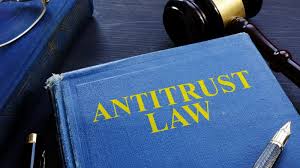New Criminal Antitrust Whistleblower Law Enacted

Two days before Christmas, President Trump signed the Criminal Antitrust Anti-Retaliation Act, which prohibits retaliation against employees who report criminal antitrust violations internally or to the government. The Act was sponsored by Senators Chuck Grassley from Iowa, a long-time supporter of whistleblowers, and Patrick Leahy.
From 2010 to 2019, the Antitrust Division has brough criminal enforcement actions that resulted in over $9 billion in criminal fines and penalties, and prosecuted more than 250 individuals for participation in these illegal conspiracies.
The Act protects employees who report internally or to the federal government any criminal antitrust violation, any act which an employee “reasonably believed” to be a criminal antitrust violation or other criminal violations committed in conjunction with potential antitrust violations (e.g. wire fraud, money laundering). The protection against retaliation extends to witnesses or others who assist a federal investigation or prosecution.
Companies will have to navigate this new Act when dealing with employees who claim protection under the whistleblower law. The Act includes a broad definition of “employee” to include contractors, sub-contractors and agents. The prohibition on retaliation includes any termination, demotion, suspension, threat or harassment against an employee.
An employee who is subjected to prohibited retaliation can file a complaint with the Secretary of Labor, and must wait at most 180 days for the Secretary to issue a final decision. If the Secretary does not do so, the employee can file a civil action in federal court.

Employees may avoid raising criminal antitrust issues internally and report initially to the U.S. Department of Justice criminal conduct. If subject to retaliation, the whistleblower employee shall have to file then with the Secretary of Labor, just as the case with Sarbanes-Oxley whistleblowers.
In the case of a violation of the retaliation protection, the employer must reinstate the employee with the same seniority status, pay back pay with interest, and compensate the employee for litigation costs and attorney’s fees.
The new law does not provide for any financial compensation of a whistleblower, in contrast to the False Claims Act and SEC Whistleblower Program. The Act also excludes employees from protection who participated in the criminal conduct or obstructed the investigation.

The number of claims of retaliation will most likely increase. The exclusion of participants in the criminal antitrust conspiracy will become a hot-button issue since a whistleblower will often be privy to such information because of his/her involvement in the same reported conspiracy. Companies will have to take care in responding to employees who claim retaliation in order to minimize litigation risks.
It is critical that companies adopt and publicize internally a whistleblower policy confirming their support of whistleblowers rights to provide information and protection from retaliation. The Act gives companies an opportunity to publicize the importance of reporting violations of law and company policies.














